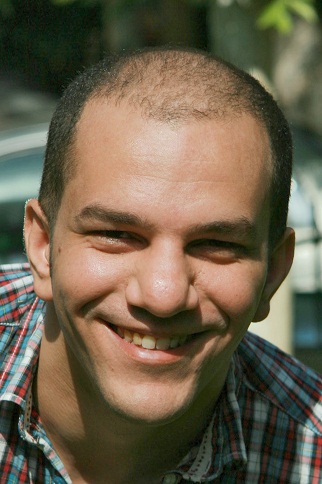 A few months ago, a group of police officers decided to challenge the current ban in the Interior Ministry’s administrative decree on growing any facial hair or long hair.
A few months ago, a group of police officers decided to challenge the current ban in the Interior Ministry’s administrative decree on growing any facial hair or long hair.
A few police officers decided to break that ministerial code that regulates the appearance of police officers and let go of their beard.
Based on this decree, the ministry referred them to a disciplinary council for breaching the code.
The officers then appealed before the Cairo Administrative Court.
Their appeal was rejected on Wednesday and the court decided to uphold the Interior Ministry’s decision to refer them to the disciplinary council.
This new movement within the police could possibly be encouraged by the Islamists’ political triumphs over the past year in both the parliamentary and presidential elections, taking the chance to rebel against their previous wholesale exclusion from many aspects of the public life.
Part of this trend was last week’s launch of the first TV channel where all the presenters are women who wear the full-face veil.
Before Islamists’ active participation in Egypt’s political life, it was hard to even imagine a bearded man in a police uniform or a face-veiled woman presenting a TV show.
According to a report by Al-Masry Al-Youm newspaper, the police officers said they should be allowed to express themselves freely, which is a right protected by the constitution.
They also argue that the ministry’s decree contradicts with the principles of Islamic law, which is the main source of legislation, and with international agreements and conventions that Egypt has signed.
Even though their argument might have some validity to it, but would allowing police officers to grow beards put the aspired political impartiality of state institutions at stake?
Would secularists be having double standards then for calling for freedom of religion and expression while preventing police officers from freely expressing their own beliefs?
Until recently the Islamic beard (especially the salafist version of it) used to signify piety and symbolise a greater commitment to one’s faith, that is, a purely religious symbol.
However, now that salafist groups decided to extend their activity beyond preaching and into politics, does the beard still remain a purely religious symbol, or does it have political and partisan connotations to it?
Since the establishment of political parties in Egypt, especially Al-Nour (salafist) Party, which almost each of its members grow a very distinctive beard, the beard ceased to only exist as a religious symbol but is now also a sign of partisanship and political affiliation.
In times of political turmoil, trying to build politically neutral institutions is all the more challenging since most of these institutions still haven’t recovered from the 25 January revolution blow.
Without careful watching, they could be an easy prey for rising political powers to infiltrate and use to their own favour.
Egyptians have suffered for long from a police state whose main role was to safeguard the interests of a corrupt and authoritarian regime.
During protests against the ruling party or president and during any kind of elections, the police, and all state institutions including the judiciary and the media, used to side with the regime.
State security used to closely monitor dissident activities and in many cases arbitrarily arrest and torture those who they define as a threat to the regime.
The political neutrality of the police is one of the most important goals in the process of transitional justice that Egypt is supposedly undergoing.
The reason this case concerns the neutralisation of state institutions more than it does religious freedom is the adoption of Islam as a political and a legal system and not just a faith by some religious groups, which in turn makes their own symbols political as well as religious.
These Islamists groups are the ones who are creating these deep philosophical concerns by mixing religion with politics and then calling for religious freedom in politically sensitive institutions.
The rising influence of political Islam combined with the police’s long history as an oppressive politicised tool in the hands of the regime makes it risky, at least in a transitional period, for this massive monster to take sides in political battles.
The memory of state brutality is still too fresh to allow the police to fall under any party’s control, especially those with questionable democratic credentials.



